-
How to Choose Eco-Friendly Dental Care Products

You recycle, use LED lights, carry reusable bags to the grocery store and reusable coffee mugs to the coffee shop, and generally try to keep your carbon footprint to a minimum. You are doing what you can to be eco-conscious, but have you taken a good look at your dental care routine? Choosing eco-friendly dental care products is a great way to minimize your environmental impact, as long as you do it safely. Here, we offer suggestions for creating an eco-friendly dental routine that is also good for your oral health.
- Choose toothbrushes made of sustainable materials. It is important to replace worn out toothbrushes frequently, about every three months, but it is hard seeing those plastic toothbrushes go into the garbage can. Fortunately, there are some sustainable alternatives. One option is to look into recycling programs in your area that take plastic toothbrushes, and another is to repurpose your old toothbrushes, using them to clean things like jewelry, sneakers, kitchen appliances, and bathroom grout. You can also reduce the amount of toothbrush you are throwing away each time by using an electric toothbrush and simply disposing of the heads. Perhaps the simplest thing to do, though, is to use a bamboo toothbrush. Bamboo toothbrushes are renewable, sustainable, and fully biodegradable, making them a very eco-friendly option. To find the perfect bamboo toothbrush, look for one that is BPA free and cruelty free, ethically sourced, and soft-bristled so that you won’t cause tooth erosion when you brush.
- Switch out your toothpaste for an eco-friendly option. Look for a toothpaste that contains fluoride, xylitol, and perhaps calcium phosphate, and check to make sure it has the ADA seal of acceptance. Dry toothpaste, available in tablets or powders, is an excellent option because it requires far less packaging than toothpaste in tubes. Dry toothpaste is highly concentrated and does not contain water. It cleans teeth effectively, is typically sold in sustainable packaging, and is portable and resistant to changes in the weather.
- Toss your floss. Floss is great for your teeth, but most string floss is bad for the environment, because it is not biodegradable. Look for dental floss that does not contain plastic, but is made with natural materials like silk, beeswax, or bamboo, which are all 100 percent biodegradable. You could also invest in a water flosser, which does a good job and produces no waste whatsoever.
- Make your own mouthwash. Many commercial mouthwashes contain alcohol, which can try out your mouth, and come in plastic bottles which may or may not be recyclable. It is easy to make your own mouthwash, however, and you can store it in a reusable glass container. DIY mouthwash is made from ingredients like apple cider vinegar, baking soda, and coconut or peppermint oil. Just be aware that you shouldn’t swallow mouthwash, commercial or homemade.
- Be water wise. Did you know that turning off your tap when you brush your teeth can save up to four gallons of water every time you brush? Fill a cup with water to rinse your mouth and then your brush, and turn off the water while you are brushing.
At Park 56 Dental Group, we offer pediatric, prosthodontics, endodontics, oral surgery, Invisalign®, emergency, and sedation dentistry, all at the highest level of treatment. We serve the Midtown, Central Park, Upper East Side, Park Avenue, and all surrounding Manhattan and New York areas, with a patient-centered practice that has hours to fit your schedule. Schedule your complimentary consultation today by contacting us online or calling us at (212) 826-2322.
-
Does menopause affect your oral health?

Menopause is a time of life that brings many unpleasant surprises. Hot flashes, insomnia, and mood swings are some of the commonly known symptoms that affect women going through this stage. Less known is the impact of fluctuating hormone levels on the mouth, but there definitely seems to be a link. As estrogen levels decrease during perimenopause and menopause, many women notice sensitive teeth, painful gums, dry mouth, and other issues.
- Hormonal fluctuations can cause tooth sensitivity. If you often find that your teeth hurt after you eat or drink hot or cold things, you may have sensitive teeth. This condition happens when the inner part of the teeth, the dentin, lose their enamel and cementum coatings, leaving the nerves inside vulnerable.
- Gum inflammation is another side effect of menopause. Women going through menopause might experience gingivostomatitis, an oral health condition that causes gum inflammation and canker sores. Periodontal disease can also develop due to low estrogen levels, leading to gum inflammation, bright red or purple gums, gum tenderness and bleeding, receding gums, pus formation, bad breath, bite issues, and loose teeth or gaps between the teeth. Interestingly, another problem that often occurs with menopause is lowered bone density, which can cause bone loss in the jawbone. The treatment for this condition often includes bisphosphonate drugs, which also help prevent the progression, of periodontal disease. Your dentist or periodontist can also treat periodontal disease by scaling to remove tarter, prescribing antimicrobial oral rinses or oral antibiotics, or performing flap surgery. For severe disease, bone or tissue grafts may be necessary. Practicing impeccable oral hygiene is a major part of controlling periodontal disease, and so is quitting smoking.
- Changes in hormone levels can change the way food tastes. Salty, sour, or peppery foods bother some women, and food can sometimes taste unusually bitter or metallic. Sometimes, these menopause-related taste changes are accompanied by a condition known as burning mouth. As the name implies, burning mouth causes burning, pain, and tenderness around the mouth, including the lips tongue, and cheeks.
- Tooth pain can be caused by menopausal changes. For example, declining estrogen levels can decrease the thickness of the oral mucosal epithelium, leading to greater sensitivity to pain and higher vulnerability to mouth infections.
- Dropping hormones can cause dry mouth. Hormones help support saliva production and maintain the consistency of the saliva, but lower levels of estrogen can decrease your mouth’s ability to produce saliva. Dry mouth makes it uncomfortable to eat, but it can also cause gum sensitivity, mouth ulcers, sore gums, an increase in infections, and cavities.
Often, doctors prescribe hormone replacement therapy to help combat the signs of menopause. However, it’s also important to work with your dentist to keep your oral health in good shape. Regular cleanings and check-ups, brushing and flossing daily, taking supplements like calcium and vitamin D, and using products to treat sensitive teeth and dry mouth can all be part of maintaining oral health during menopause. It’s also important to have a good dentist.
At Park 56 Dental Group, we offer pediatric, prosthodontics, endodontics, oral surgery, Invisalign®, emergency, and sedation dentistry, all at the highest level of treatment. We serve the Midtown, Central Park, Upper East Side, Park Avenue, and all surrounding Manhattan and New York areas, with a patient-centered practice that has hours to fit your schedule. Schedule your complimentary consultation today by contacting us online or calling us at (212) 826-2322.
-
How Staying Hydrated Can Help Improve Your Dental Health

You hear it from everyone: drink more water. Experts advise drinking about eight glasses of water each day to help improve your health. Water is good for you for many reasons; it helps you detox, keeps your skin plump, youthful, and clear, and may even reduce your risk of certain cancers. It helps just about every system in the body, from your circulation to your muscles, and it’s no wonder, because we’re made of about 60 percent water. What you may not know, though, is that in addition to all those benefits, remaining well hydrated can improve your dental health. Let’s take a closer look at why that’s true.
- Water strengthens teeth. Water, especially fluoridated water, contains fluoride and other minerals that help restore the calcium and phosphorous levels in dental enamel. Did you know that in communities with fluoridated water, each dollar spent on fluoridation saves about $38 in dental healthcare costs? Drinking water is especially important for young children because it strengthens teeth as they are forming, making them more cavity-resistant throughout the child’s life.
- Drinking water helps clean the mouth. Drinking sugary beverages like soda, sports drinks, and juice can cause sugars to remain on the surface of the teeth. This leads to growth of the bacteria in plaque, which release harmful acids that degrade tooth enamel and cause decay. Drinking water, on the other hand, washes away food residue and discourages bacterial growth. Because food residue and bacteria cause bad breath, people who drink a lot of water have better smelling breath. Drinking water isn’t a substitute for brushing and flossing, but it can be an important part of your dental care routine.
- Dry mouth can be alleviated by drinking water. This makes sense, because saliva is 99 percent water. Dry mouth is a condition in which the mouth does not produce enough saliva, making it harder to chew and swallow, and causing an elevated risk of tooth decay. Drinking water hydrates the mouth and stimulates saliva production, making it a powerful weapon against dry mouth.
- Water can help prevent stains on the teeth. Foods and beverages like coffee, tomato sauce, wine, curry, and citrus fruits can leave behind stains, but drinking water in between bites or sips can quickly rinse away residue before it has the chance to settle into a stain.
- Water is a calorie free beverage. Consumption of sugary beverages contributes to the rising obesity rate in the United States, and people who drink more than one sugary beverage per day are nearly 30 percent more likely to develop type 2 diabetes. Water has no calories and no sugar, making it a much healthier option.
At Park 56 Dental Group, we offer pediatric, prosthodontics, endodontics, oral surgery, Invisalign®, emergency, and sedation dentistry, all at the highest level of treatment. We serve the Midtown, Central Park, Upper East Side, Park Avenue, and all surrounding Manhattan and New York areas, with a patient-centered practice that has hours to fit your schedule. Schedule your complimentary consultation today by contacting us online or calling us at (212) 826-2322.
-
Do Genetics Play a Role in Your Dental Health?

At Park 56 Dental, we understand that genetics play a role in your overall health, but did you know that it also plays a role in your dental health? While good oral hygiene habits can go a long way towards protecting your teeth and gums, genetics determine how predisposed you are to certain dental issues. Let’s break down the role of genetics in dental health.
Dental Caries
One of the most common dental problems is tooth decay or cavities. Cavities can be caused by poor oral hygiene habits, but they can also be a result of genetic factors. Studies have found that some people may develop more cavities than others due to their genetic makeup. For example, if you have a family history of cavities, then you may be more likely to develop them yourself.
Tooth Wear and Tear
In addition to cavities, tooth wear and tear can also be affected by genetics. Some people may be genetically predisposed to having weaker teeth than others which make them more prone to experiencing wear and tear earlier in life. This is especially true for those with thinner enamel which makes it harder for their teeth to withstand the pressures of daily activities like chewing and grinding.
Misaligned Teeth
One of the most common effects of genetics on oral health is misaligned (crooked) teeth. In many cases, crooked teeth are caused by genetic factors such as jaw size and shape, or even a difference in the length of two sides of the jaw. If you have crooked teeth, Park 56 Dental in New York can help with orthodontic treatments like braces and Invisalign® to help straighten them out.
Teeth Color
The color of your teeth is another trait that can be influenced by genetics. Some people have naturally whiter teeth than others due to inherited traits, while others may have naturally yellowish or grayish tints to their smile due to genetics as well. Park 56 Dental offers professional whitening services that can help brighten up any shade of smile.
Periodontal Disease
Genetics can also play a role in periodontal (gum) disease as well as other diseases such as diabetes and cancer that may affect your oral health. If you have any family members who have experienced gum disease or other serious dental problems, then you may be at an increased risk for developing these issues as well. It is important to keep track of any family history related to your dental health so that you can take steps to prevent any potential problems from occurring.
Reach Out to Park 56 Dental to Protect Your Smile!
The bottom line is that genetics do play a role in your dental health, but good oral hygiene habits are still important for keeping your teeth and gums healthy. So, if you want to protect yourself from potential dental problems down the road, make sure you brush twice daily, floss once daily, rinse with an antiseptic mouthwash regularly and visit Park 56 Dental at least twice a year for check-ups and cleanings! By taking these steps now, you’ll ensure that your smile remains healthy for many years to come!
-
Are Water Flossers Worth It?
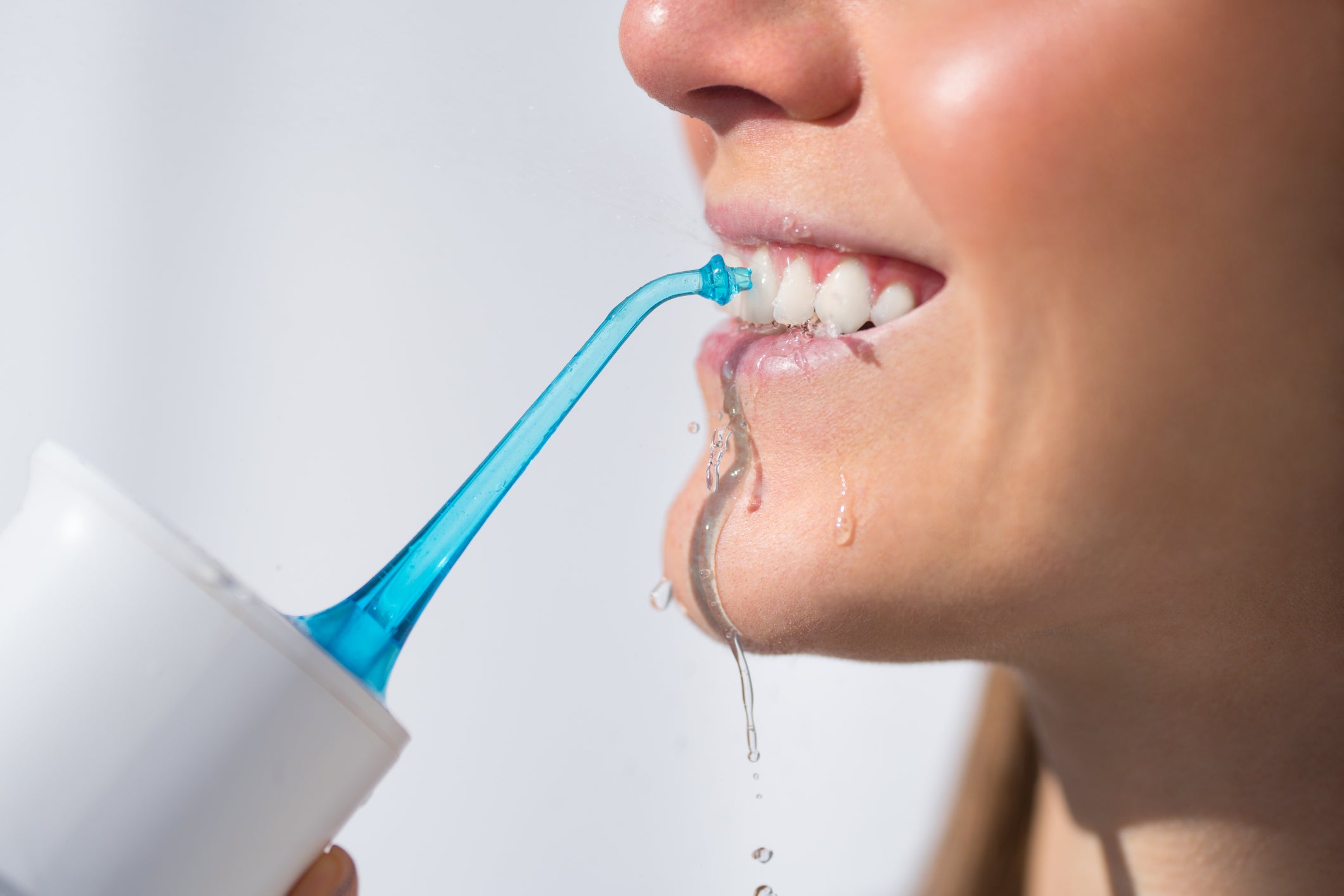
If you’re looking for an effective way to improve your oral health, you may have heard about water flossers. But are they really worth it? Here at Park 56 Dental in New York, we can tell you the answer is yes. Let’s look at exactly why water flossers are so helpful and how they can make a difference in your smile.
What is a Water Flosser?
A water flosser is an oral hygiene device that uses pulsating streams of water to remove plaque, bacteria, and food particles from between teeth and under the gum line. It is often used as an alternative to traditional string flossing or floss picks for those who find it difficult to use them effectively.
Water Flossers Have the ADA Seal of Acceptance
Get your oral health on the right track by choosing a water flosser with the ADA Seal of Acceptance! With proven safety and effectiveness, these products can help reduce plaque buildup that leads to cavities and gum disease. Plus, they have been clinically tested to lower gingivitis–so you get fresh breath all day long no matter where you are in your smile journey! Check out this list for recommended ADA-Accepted water flossers.
Benefits of Water Flossing
Take your dental hygiene routine to the next level by adding water flossing to your routine. Water flossers are a revolutionary device that provide numerous benefits over traditional flossing:
- Improved Gum Health – Studies have shown that water flossers are significantly more effective at preventing gum disease than traditional string floss. This is because they deliver a steady stream of water directly into hard-to-reach areas of the mouth, making it easier to remove plaque and food particles from between the teeth and gums.
- Reduced Bleeding – Traditional string floss can cause your gums to bleed if used incorrectly or too aggressively, but this isn’t an issue with water flossers. The pressure from the stream of water is gentle enough that it won’t aggravate sensitive gums, and yet still powerful enough to remove plaque and food particles from between the teeth and gums.
- Time Savings – Traditional string floss takes time—sometimes up to 10 minutes—but with a water flosser, you can clean your entire mouth in just 60 seconds! This makes it much easier to fit into even the busiest of schedules.
- Versatility – Unlike traditional string floss, which can only be used on teeth, water flossers can be used anywhere in the mouth—including between teeth, along the gum line, and even on bridges and braces! It even comes with a variety of tip attachments for different types of cleaning needs (e.g., plaque removal, stain removal).
- Cost Savings – Although they may seem expensive upfront, when you factor in how much time they save you in your daily oral care routine, their cost quickly balances out over time since you don’t need to buy new supplies as often as with traditional string floss. Plus, since they last longer than regular string floss, there is less waste overall too!
We hope this article has helped you understand why using a water flosser is such an important part of any good oral hygiene routine! If you’re interested in learning more about how a water flosser can help improve your smile, please don’t hesitate to contact us here at Park 56 Dental in New York today! We look forward to helping you achieve the best possible results for your mouth and teeth!
-
Simple Ways to Motivate You to Floss Every Day
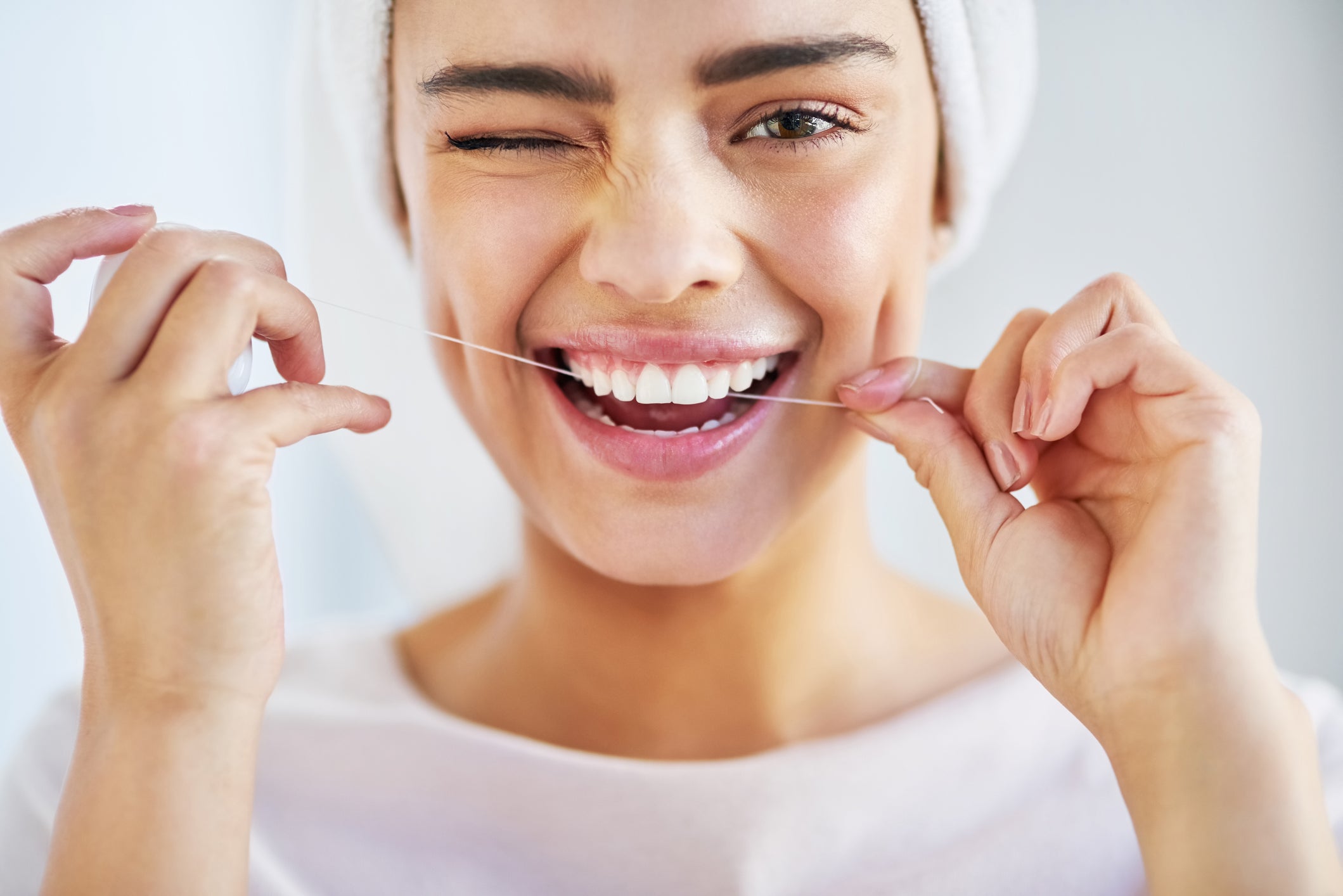
Good oral hygiene is important for a healthy mouth, and one of the most effective ways to achieve it? That’s right—flossing! Flossing is one of the most important habits you can adopt to maintain good oral health. According to research, only 4 out of 10 adults floss daily and only 1 in 3 actually flosses correctly. Daily flossing helps prevent cavities, gum disease, and bad breath. But sometimes it’s hard to remember to do it every day. So here are some simple motivators that might help you get into the habit of regular flossing.
Find a Flossing Product That Works for You
The type of floss you use matters! Many people don’t realize that different types of floss work differently for different types of teeth and mouth needs. Waxed, non-waxed, disposable floss sticks, electric or water flossers—there are so many options available! If one type of product isn’t working well with your teeth and gums, try another! Experiment with different products until you find the perfect one for your personal oral hygiene routine.
Keep Your Floss in Sight
If you have your dental floss handy, you are more likely to remember to use it every day! Try keeping an extra package at the office or even in your pocket or purse wherever you go. You should also keep a container on the sink or bathroom countertop as a constant reminder that it’s time to floss every day!
Set A Goal
One of the best ways to make sure you stick with something is to set a goal. Make a goal that you can realistically achieve, like “I will floss at least twice a week for the next month.” Once you reach that goal, reward yourself by doing something special or purchasing something nice! This will help motivate you to keep going and eventually make daily flossing part of your routine.
Create A Chart
If setting goals isn’t quite your thing, another way to motivate yourself is by creating a chart or calendar that tracks your progress. Every day after you floss, mark it off in your chart or on your calendar as a reminder that you achieved your goal for the day. Seeing this progress can give you an added boost of motivation and encouragement!
Use A Reminder App
If neither of these methods seem like they’d work for you, consider downloading a reminder app onto your phone or laptop. With this type of app, all you have to do is set the time when you want it to remind you each day–it could be right before bedtime, so it becomes part of your nighttime routine–and then just follow through with the action when the reminder goes off!
Get Flossing!
Flossing every day is an important part of maintaining good oral hygiene and overall health. And while remembering to do it can be difficult at times, there are several easy strategies available that can help motivate and remind us so that we don’t forget! Whether it’s setting goals and rewarding yourself for reaching them, using visuals like charts and calendars, or using apps on our phones for reminders—these simple strategies can help ensure we stick with our daily flossing routine.
If any questions remain about flossing or other dental-related topics such as teeth whitening services offered at Park 56 Dental in New York City, please contact us today!
-
Understanding Your Gums
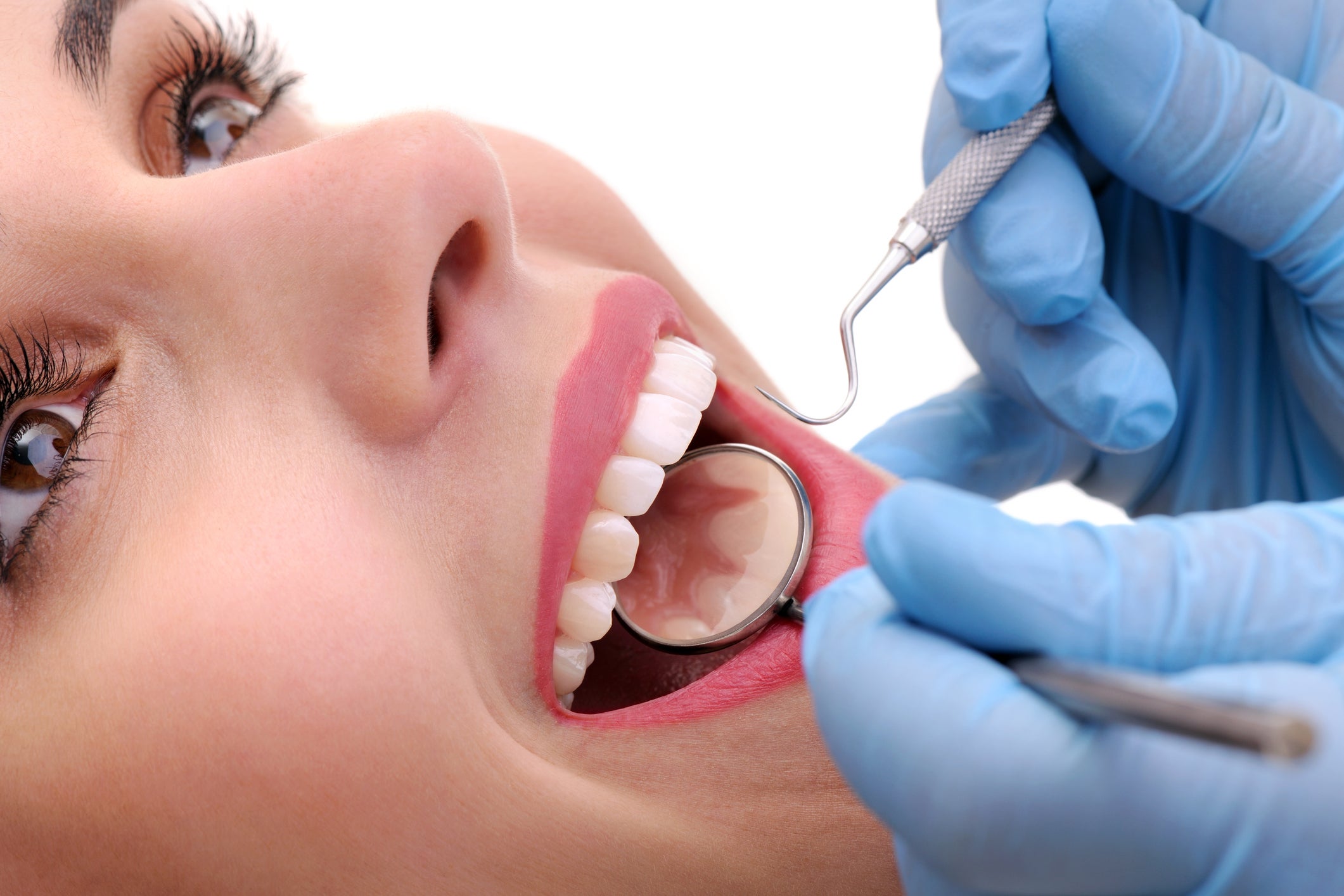
You know about cavities, and tooth decay, and how important it is to brush and keep your teeth healthy. But how much do you know about the health of your gums? The gums are an important part of your mouth, and if they’re not in good shape, your whole mouth can suffer. What do you need to know about your gums?
You might have noticed that your oral hygienist or dentist probes your gums during your regular check-ups. This is to determine if your gums are fitting snugly against your teeth. Unhealthy gums have pockets of space, and the deeper the pocket, the worse your gum health. It may feel like your gums are just being poked, but what the dentist is actually doing is measuring them. The tool used to probe gums is called a periodontal probe, and it’s essentially a tiny ruler. It is inserted into pockets in your gums, and the depth is recorded in millimeters.
Your dentist will keep track of these numbers as a preventive measure against periodontal disease (gum disease). Only your dentist can diagnose gum disease, but in general, 1 to 3 mm means the gums are generally healthy, 4 mm means you need to pay more attention to your oral care, 5 to 6 mm indicates gum disease, and anything over 6 means advanced gym disease. By regularly checking gum pocket depth, your dental team can catch periodontal disease early, when it’s still relatively easy to treat.
You can look for signs of gum disease at home, too. Swollen, sore, or bleeding gums could be a sign of gingivitis or periodontal disease. Gingivitis is the early stage of gum disease, and it happens when plaque builds up at the gumline. Once it progresses to periodontitis, it can affect the bone and tissue supporting your teeth. However, these symptoms can also be caused by other conditions and even vitamin deficiencies. Hormonal changes like pregnancy, illnesses like diabetes, infections, and vitamin C deficiency can all be responsible for gum problems, so you will want to see your dentist to get the right diagnosis.
What can you do to keep your gums healthy? First, pay attention to your oral care routine. Brush twice a day and floss once a day, brushing gently so that you don’t injure your gums. Consider using a water flosser, to clean below the gumline. Eat a nutritious diet, don’t use tobacco products, drink alcohol only in moderation, and take supplements, especially if you think you are not getting enough vitamin C. See your dentist for regular check-ups and cleanings, but in between visits, pay attention to your gums so that you can make a dental appointment if you notice signs of gum disease.
At Park 56 Dental Group, we offer pediatric, prosthodontics, endodontics, oral surgery, Invisalign®, emergency, and sedation dentistry, all at the highest level of treatment. We serve the Midtown, Central Park, Upper East Side, Park Avenue, and all surrounding Manhattan and New York areas, with a patient-centered practice that has hours to fit your schedule. Schedule your complimentary consultation today by contacting us online or calling us at (212) 826-2322
-
Everything You Need to Know About Canker Sores
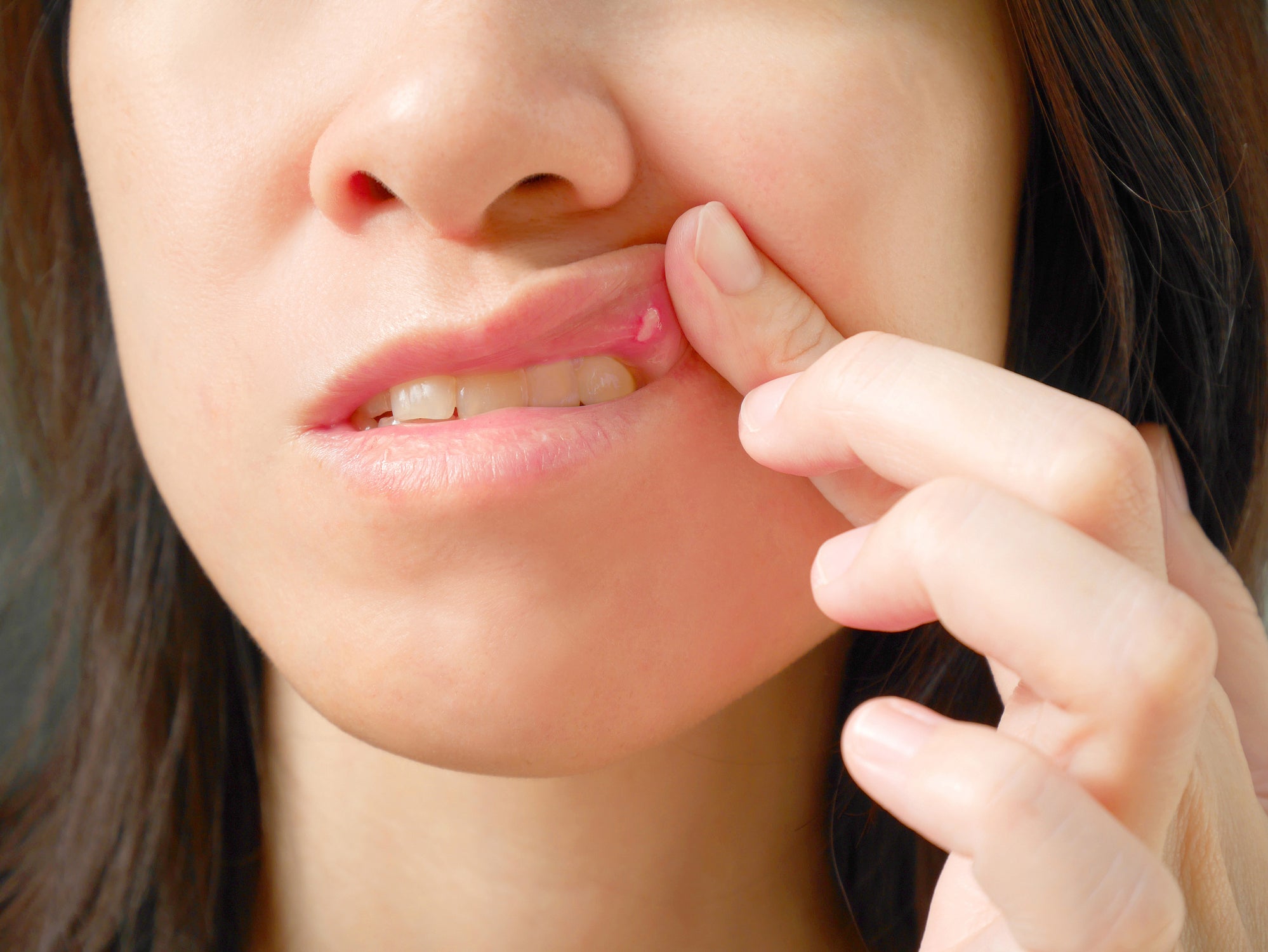
Canker sores are small ulcers that form inside the mouth. They can be very painful and make it difficult to eat or drink. Most canker sores heal on their own within 1-2 weeks. However, there are some things you can do to help relieve the pain and speed up the healing process. In this blog post, we will discuss everything you need to know about canker sores.
What Causes Canker Sores?
The exact cause of canker sores is unknown. However, there are several things that may contribute to their formation, including:
- Stress
- Hormonal changes (e.g., during puberty or menopause)
- Nutritional deficiencies (e.g., iron, vitamin B12, or folic acid)
- Trauma to the mouth (e.g., from toothpaste that is too abrasive or braces that rub against the inside of the mouth)
- Use of certain medications (e.g., blood thinners or drugs that contain sulfur)
- Infections (e.g., viral infections such as herpes simplex virus type 1 or bacterial infections such as strep throat)
How Are Canker Sores Treated?
Most canker sores heal on their own within 1-2 weeks. However, there are some things you can do to help relieve the pain and speed up the healing process. These include:
- Eating soft foods and avoiding spicy, acidic, or crunchy foods that might irritate the sore
- Rinsing your mouth with a saltwater solution
- Applying a topical numbing agent
- Taking over-the-counter pain relievers such as ibuprofen or acetaminophen
- Applying a topical steroid cream
- Undergoing laser treatment (this is usually done by a dentist or doctor)
How Can Canker Sores Be Prevented?
Canker sores are most common in teens and young adults, and can be caused by stress, hormonal changes, or a lack of certain nutrients. While canker sores are not contagious, they can be difficult to get rid of once they form. However, there are some things that can be done to prevent canker sores from forming in the first place:
- Reducing stress through relaxation techniques such as yoga or meditation
- Avoiding foods that you know trigger canker sores
- Practicing good oral hygiene by brushing your teeth twice a day and flossing daily
- Using a soft toothbrush and toothpaste without fluoride
- Wearing mouthguards when playing sports
If you experience frequent or severe canker sores, you should see a dentist or doctor to rule out any underlying medical conditions.
Contact Park 56 Dental Today for Canker Sores Treatment and Advice
If you’re dealing with canker sores, Park 56 Dental can help. We can provide you with tips on how to prevent canker sores from forming in the first place, and we can also provide you with treatment options if you do develop one. Don’t suffer in silence–contact Park 56 Dental today. We’ll be happy to help you get your mouth back to feeling healthy and comfortable again.
-
The Relationship Between Oral Health and Acne

Have you ever wondered if your teeth and gums could be plotting against your skin? Surprisingly, your oral hygiene is more connected to those pesky pimples than you might expect. Explore how keeping your mouth healthy can benefit your complexion.
Continue reading “The Relationship Between Oral Health and Acne”
-
What is Burning Mouth Syndrome?
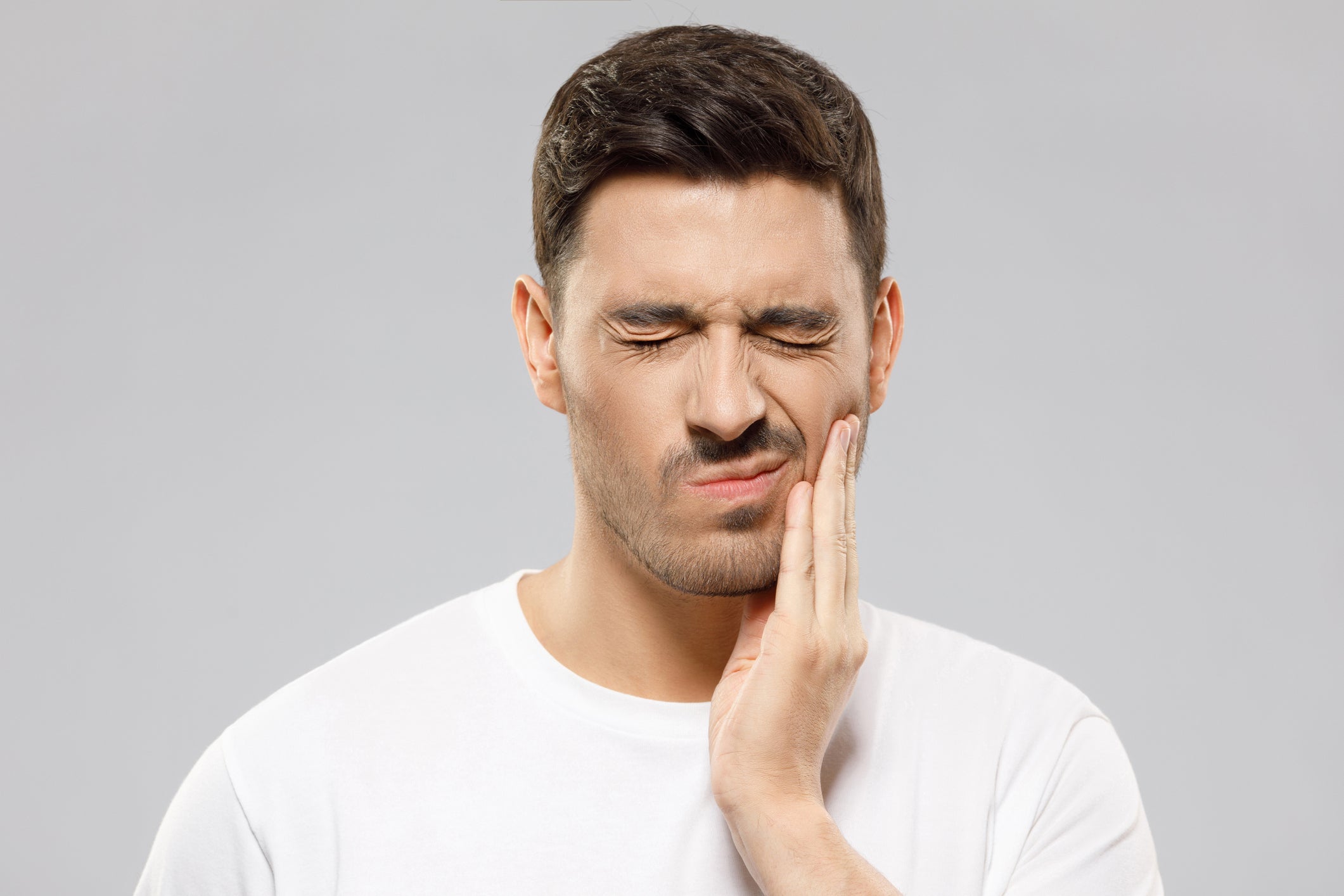
Burning mouth syndrome (BMS) is a condition that causes burning pain in the mouth. Approximately 3% of people suffer from burning mouth syndrome. The exact cause is unknown, but it is believed to be related to changes in nerve function.
Treatment typically involves managing symptoms with oral hygiene, dietary changes, and medications. In some cases, behavioral therapy may also be recommended. If you are suffering from burning mouth syndrome, you are not alone. Read on to learn more about BMS and how you can manage your symptoms to feel better.
An Overview of Burning Mouth Syndrome
Burning mouth syndrome (BMS) is a condition that causes burning pain in the mouth. It can affect the tongue, gums, lips, inside of the cheeks, and roof of the mouth. The pain may be constant, or it may come and go. BMS is also known as glossodynia, stomatodynia, orodynia, and burning tongue syndrome.
Are There Different Types?
There are two types of burning mouth syndrome: primary and secondary. Primary BMS has no known cause. Secondary BMS is caused by an underlying medical condition or medications.
Is Burning Mouth Syndrome More Common in Certain People?
Burning mouth syndrome is more common in women than men. It is also more common in people over the age of 50.
What Are the Symptoms of Burning Mouth Syndrome?
The main symptom of burning mouth syndrome is burning pain in the mouth. Other symptoms include dry mouth, bitter or metallic taste in the mouth, and sensitivity to hot or cold temperatures.
What Are the Causes?
The cause of primary BMS is unknown, but it is thought to be related to nerve damage. Secondary BMS can be caused by an underlying medical condition, such as diabetes, Sjogren’s syndrome, nutritional deficiencies, or viral infections. It can also be caused by medications, such as antidepressants, antihistamines, or high blood pressure medications.
Do Medications Cause Burning Mouth Syndrome?
Medications are a common cause of secondary BMS. Antidepressants, antihistamines, and high blood pressure medications are the most common medications that cause BMS.
How Do You Diagnose Burning Mouth Syndrome?
Burning mouth syndrome is diagnosed based on the symptoms. A physical exam and medical history are also done to rule out other conditions with similar symptoms. Blood tests may also be done to check for underlying medical conditions.
What Treatments Are Available for Burning Mouth Syndrome?
There is no cure for burning mouth syndrome, but there are treatments that can help relieve the symptoms. Treatment options include mouthwashes, lozenges, and topical creams. In some cases, antidepressant or anticonvulsant medications may be prescribed.
How Do I Prevent Burning Mouth Syndrome?
There is no known way to prevent burning mouth syndrome. However, if you have an underlying medical condition that is thought to be a cause of BMS, treating the condition may help reduce the symptoms of BMS.
How Long Does It Take for Burning Mouth Syndrome to Resolve?
The duration of burning mouth syndrome varies from person to person. In some cases, BMS may go away on its own. In other cases, it may be a chronic condition that requires treatment.
While there is no cure for BMS, there are treatments that can help lessen the symptoms. Park 56 Dental can work with you to develop a treatment plan that meets your needs. We may recommend changes to your diet, medications to help with pain or dryness, and behavioral therapies to help reduce stress or anxiety. Contact us today for a free consultation!
RECENT POSTS
categories
- Uncategorized
- Cosmetic Dentistry
- Veneers
- Healthier Teeth
- Teeth Whitening
- Dental Health
- Video
- Dental Emergencies
- Invisalign
- Dental Implants
- Root Canal
- Sedation Dentistry
- Infographic
- Dental Crowns and Bridges
- Dental Anxiety
- Gum Disease
- COVID-19
- Bad Breath
- New York Dentist
- Cut out sugar
- General Dentistry
- Oral Health
- Oral Cancer
- Dry Mouth
- Gum Health
- Toothache
- Dental Sealants
- Cavities



